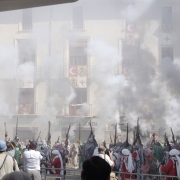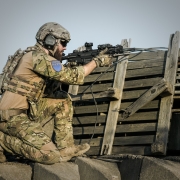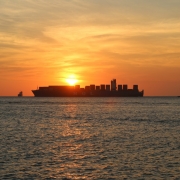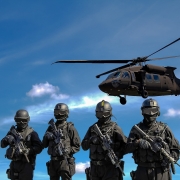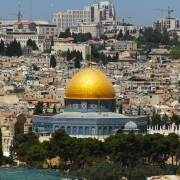Why did the Iran Hostage Crisis happen?
On 29 Nov 1979, the US submitted a case to the International Court of Justice (ICJ) due to the sudden hostage incident in Iran, which affected its embassy personnel. The US held the premise that the Iran hostage incident was a clear violation of international law. Eventually, the ICJ’s ruling was only accepted by Iran after a series of unilateral enforcement actions undertaken by the US. It was a controversial incident that lasted for 444 days that was eventually resolved, but gave rise to other problems, such as the outbreak of the Iran-Iraq War (Sep 1980 – Aug 1988) as well as the deterioration of bilateral relations between the US and Iran.
Topic of Study [For H2 History Students]:
Paper 1: Safeguarding International Peace and Security
Section B: Essay Writing
Theme III Chapter 2: Political Effectiveness of the UN in maintaining international peace and security – International Court of Justice: ensuring adherence to international law; arbitration and advisory opinion
In the next section, we will find out what happened during the Iran Hostage Crisis and the role of ICJ in resolving this tense conflict. This case study is essential in helping students to understand the supporting role of USA in ensuring the adherence to the international law.
1. [Iran] The hostage incident
On 4 Nov 1979, a group of radical Iranian college students took over the US Embassy complex in Tehran and held its occupants hostage. These students were part of the “Muslim Student Followers of the Imam’s Line”, which supported the Iranian Revolution.
Generally, the Iranian Revolution began with the mass public demonstrations against the last Shah of Iran – Mohammaed Reza Pahlavi. Under the leadership of Ayatollah Khomeini, the Revolution overthrew the American-backed monarchy. The ‘hostage incident’ was part of Iran’s protest against US and to demand the return of the deposed Shah Pahlavi.
2. [ICJ] The United Nations’ response
In response, the US submitted the case to the ICJ. On 24 May 1980, ICJ concluded that Iran had violated international law. Then, the ICJ requested the Iranian Government to ensure the immediate release of the hostages and make reparations to the US. However, Iran ignored the Court’s ruling, reflecting the absence of enforcement.
3. [USA] American response: Escape, sanctions and negotiations
Although the ICJ failed to make progress, the US attempted to resolve the crisis through other means. One such method was a joint covert rescue that was carried out by the Canadian government and the Central Intelligence Agency (CIA). 6 American diplomats who evaded capture on 4 Nov were successful in leaving Iran by air flight.
The second approach was more aggressive in nature as the US imposed economic sanctions on Iran, freezing $12 billion of assets and banning Iranian oil imports.
The third approach involved negotiations between the two governments from 1980 to 1981.
4. Outcome: Conflict resolution
In short, the Algiers Declaration (or ‘Algiers Accords’) was signed between US and Iran on 19 Jan 1981, in which involved the unfreezing of $7.9 million Iranian assets in exchange for the immediate release of the hostages. To facilitate the release based on the mutually-agreed terms, the Algiers Declaration formed the Iran-United States Claims Tribunal.
The Iran Hostage Crisis ended on 20 Jan 1981, signalling a significant decline in the diplomatic relations between Iran and US. Several months back, in Sep 1980, Iraq invaded Iran, marking the start of the Iran-Iraq War.
What can we learn from this case study?
Use the following questions to assess your understanding of this case:
– Did the ICJ play a critical role in the management of this conflict?
– How far do you agree that the lack of enforcement was the primary reason for the limited effectiveness of the ICJ in ensuring adherence to the international law?
The H2 and H1 History Tuition feature online discussion and writing practices to enhance your knowledge application skills. Get useful study notes and clarify your doubts on the subject with the tutor. You can also follow our Telegram Channel to get useful updates.
We have other JC tuition classes, such as JC Math Tuition and JC Chemistry Tuition. For Secondary Tuition, we provide Secondary English Tuition, Secondary Math tuition, Secondary Chemistry Tuition, Social Studies Tuition, Geography, History Tuition and Secondary Economics Tuition. For Primary Tuition, we have Primary English, Math and Science Tuition. Call 9658 5789 to find out more.

